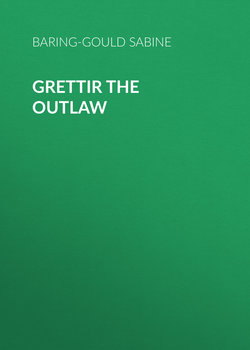Читать книгу Grettir the Outlaw - Baring-Gould Sabine, Baring-Gould Sabine - Страница 10
CHAPTER X
OF GRETTIR'S RETURN
ОглавлениеIceland Once More – Life's Bitter Lessons – Grettir Pays Audun a Visit – Some Icelandic Terms – Byres and Sels – A Chief's Hall – The Return of Audun – Grettir's Second Wrestle with Audun – Bard Interposes – The Cousins Reconciled
When Grettir came back to Biarg, he found his father so old and infirm as to be no more able to stir abroad, and Atli managed the farm for him along with Illugi, Grettir's youngest brother, now grown up to be a big boy. Grettir was now aged eighteen, but he looked and was a man. Illugi was about fifteen, a gentle, pleasant boy. He and the kindly, careful Atli were as unlike Grettir as well could be; they avoided quarrels, they had a civil word for every one, and took pains to make themselves agreeable, whether to guests in their house, or when staying anywhere, to their hosts. Grettir never troubled himself to be courteous or to be obliging to anyone. Now that he was back from Norway he was rather disposed to think much of himself as a man more brave and audacious than his fellows, for, had he not killed twelve rovers, broken into a barrow, slain a bear, and been the death of one man in a duel, and another who had attempted to assassinate him? Atli did not much like his manner, and cautioned him not to be overbearing whilst at home, lest he should involve himself in fresh troubles. But words were wasted on Grettir. He was not the fellow to listen to advice, but one of those men who must learn the bitter lessons of life by personal experience. It is so with men always. Some, who are thoughtful, see what God's law is which is impressed on all society, and listen to what others have found out as the lessons taught them by their lives, so they are able to go out equipped against the trials and difficulties of life. But others will neither look nor listen, and such have to go through every sort of adversity, till they have learned the great truths of social life, and perhaps they only acquire them when it is too late to put them in practice.
It is with laws and courtesies of life as with the three R's. A man will fare badly who cannot read, write, and cipher. If he learns these accomplishments as a child, he does well; he is furnished for the struggle of life, and starts on the same footing as other men; but if as a child he is morose and indifferent, and refuses to learn, then all through his life he is met with difficulties, owing to his ignorance, and he finds that he must learn to read, write, and do sums; and he has to acquire these in after years with much less ease than he might have learnt as a child, and after he has lost many chances of getting on which might have been seized, had he known these things before.
